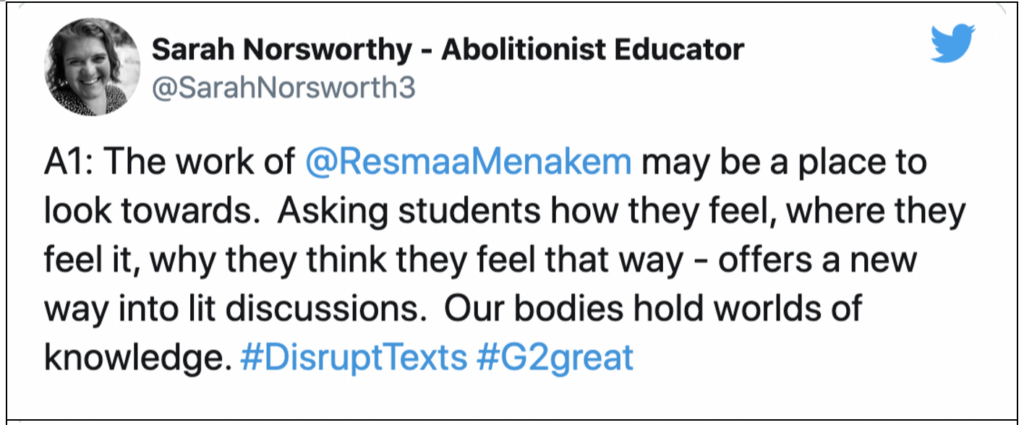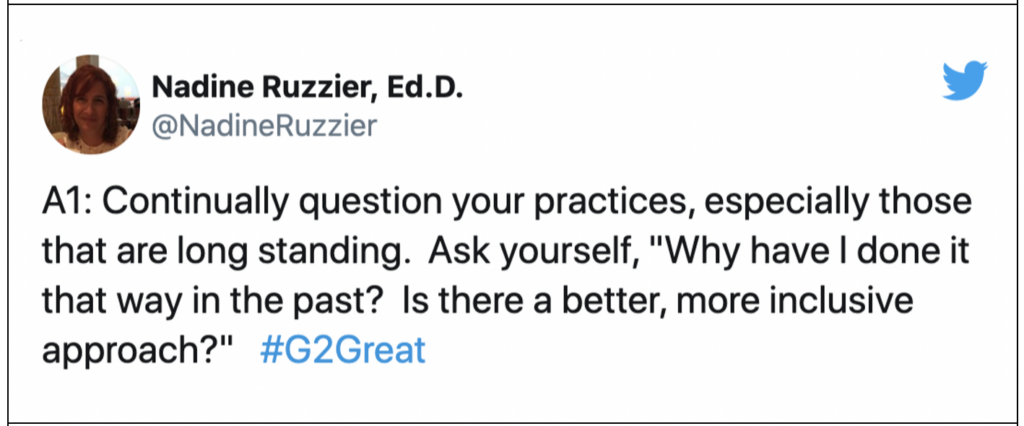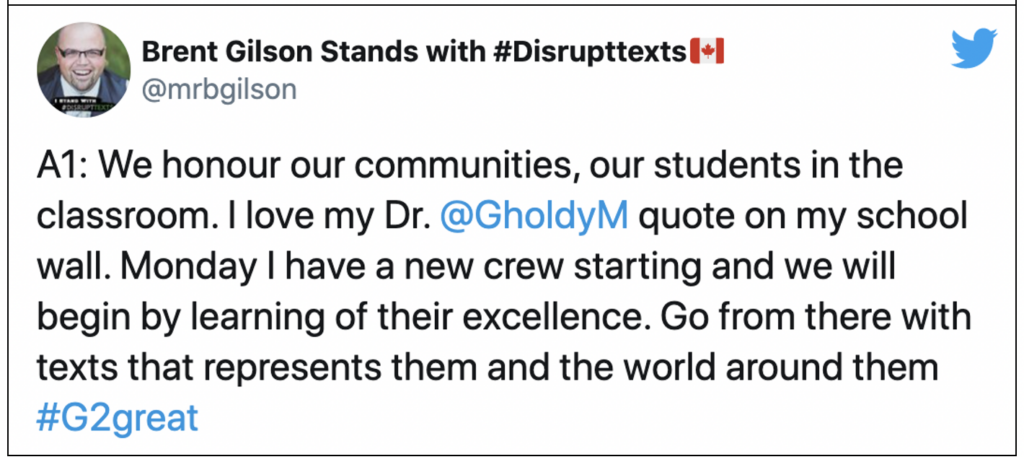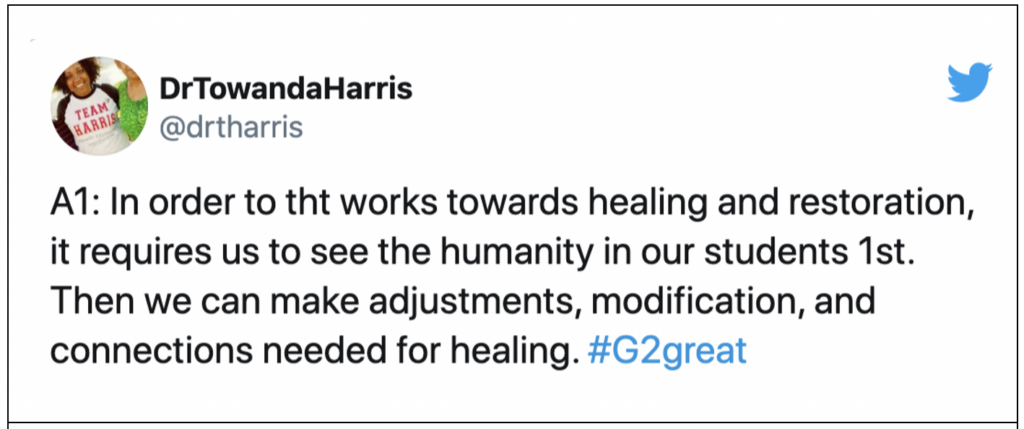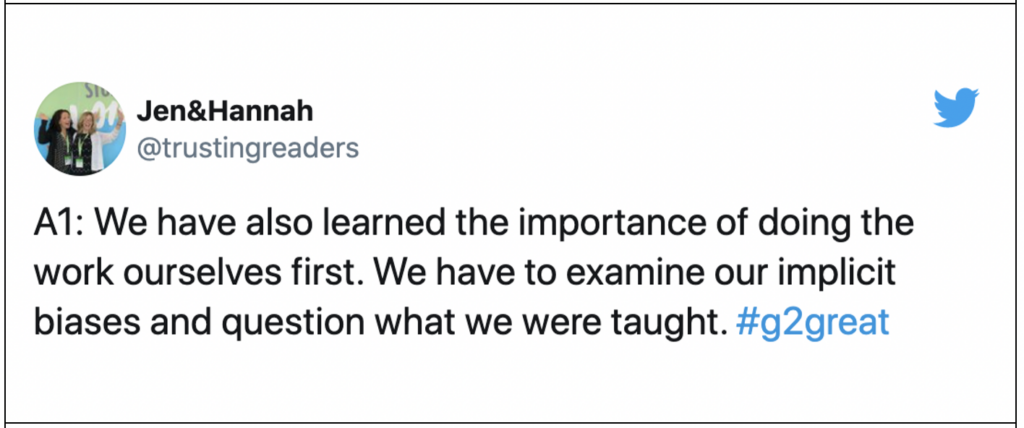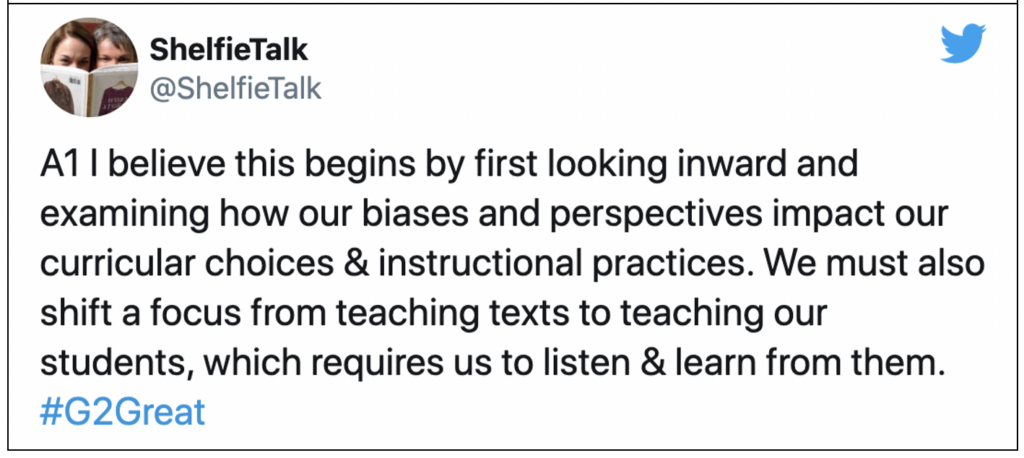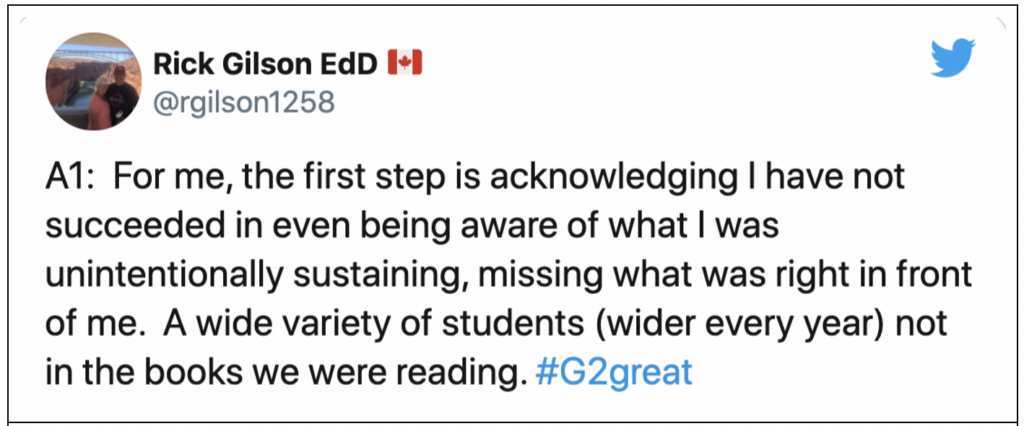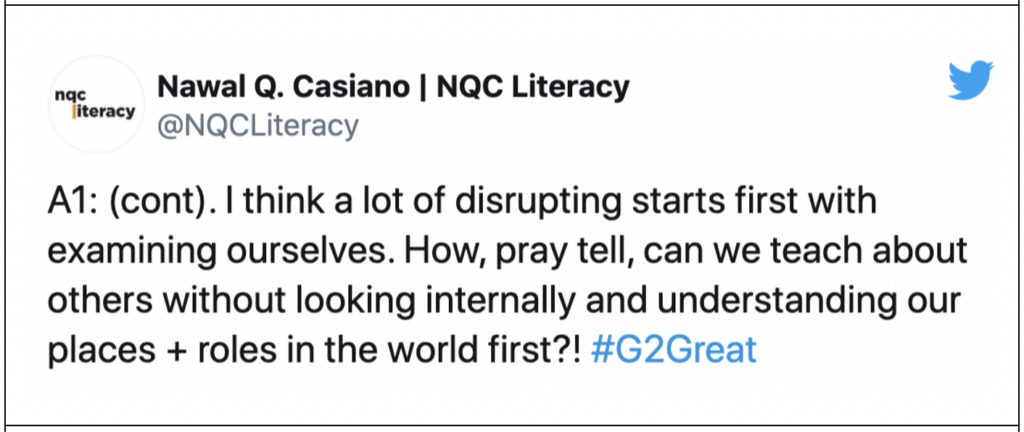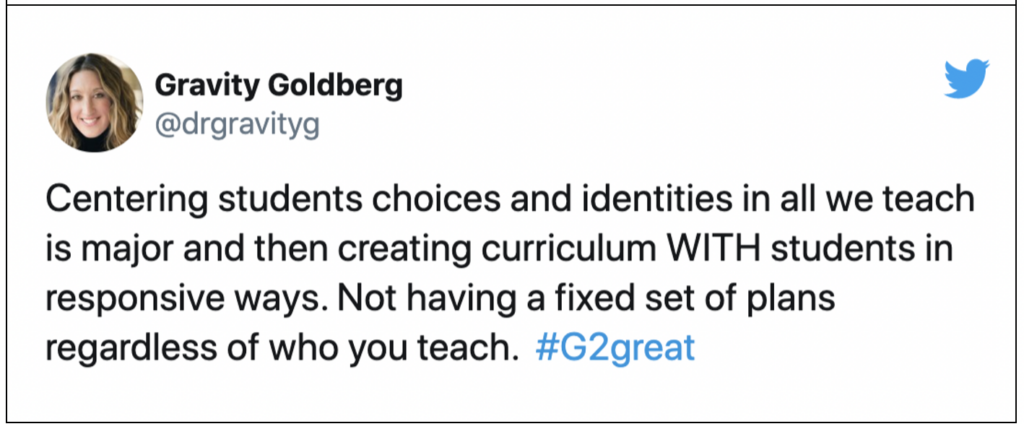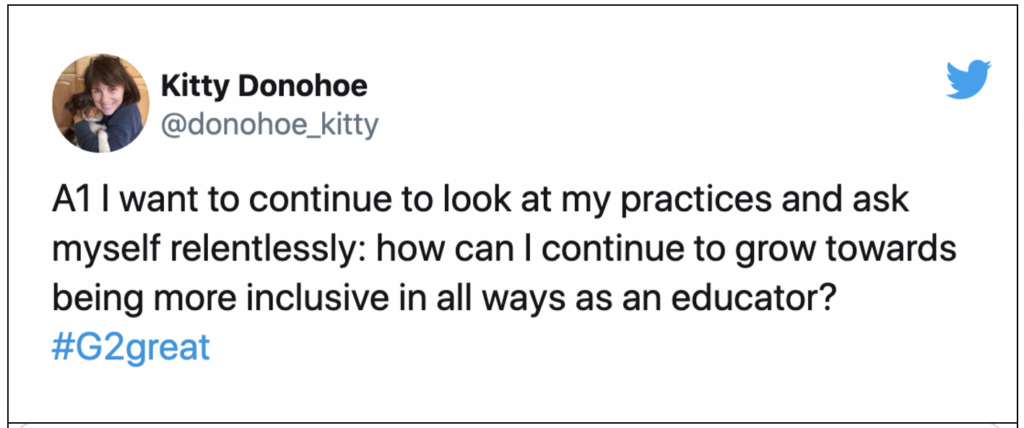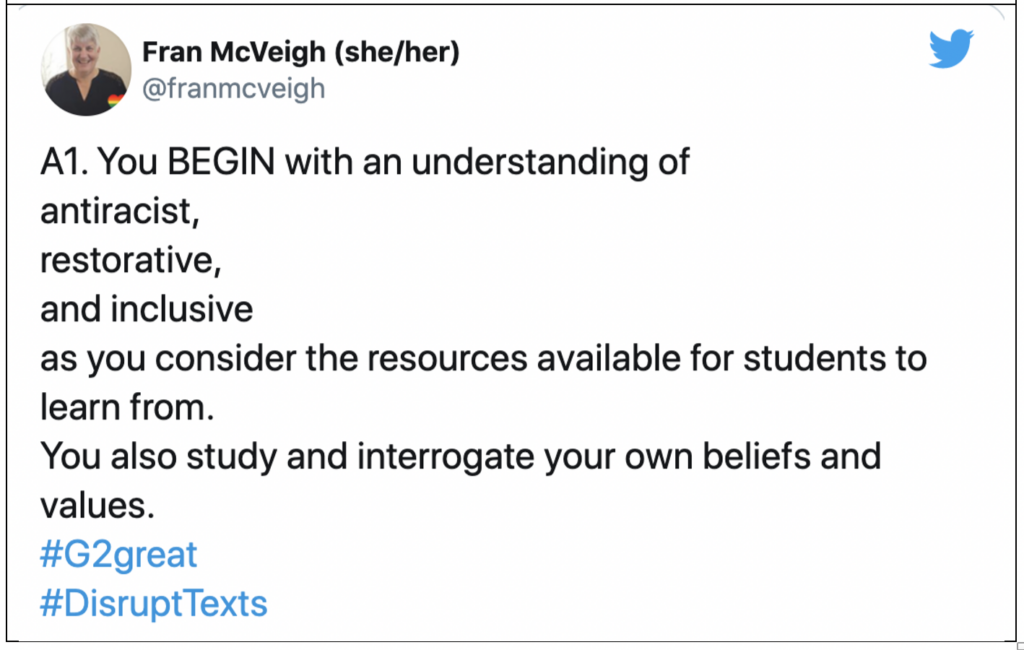by Jenn Hayhurst

#DisruptTexts Website #DisruptTexts Guides
On 1/28/21, #G2Great was honored to celebrate the remarkable work of #DisruptTexts and co-founders, Tricia Ebarvia, Lorena Germán, Dr. Kim Parker, and Julia Torres. Our #G2Great team steadfastly supports their efforts and are grateful for this opportunity to spotlight the guides they created for all of us so that more teachers can bring them to life in the company of children.
What is #DisruptTexts? I can’t think of a better way to respond to this question than in the words of the founders. In a January 2021 Statement they help us to understand both what #DisruptTexts is and is not:
#DisruptTexts is “a crowdsourced, grassroots effort by teachers for teachers to challenge the traditional canon in order to create a more inclusive, representative, and equitable language arts curriculum that our students deserve.” We believe that education, and literacy in particular, can be transformative. Through a more equitable curriculum and antiracist pedagogy, we believe that we can effect a more just world. All students deserve an education that is inclusive of the rich diversity of the human experience. They deserve one that introduces them to and affirms the voices both inside and outside their individual lives.
#DisruptTexts mission statement
In addition to helping to spread this important work, we specifically wanted to share their #DisruptTexts Guides that include eight titles. The four Core Principals of these guides are shown in this visual.
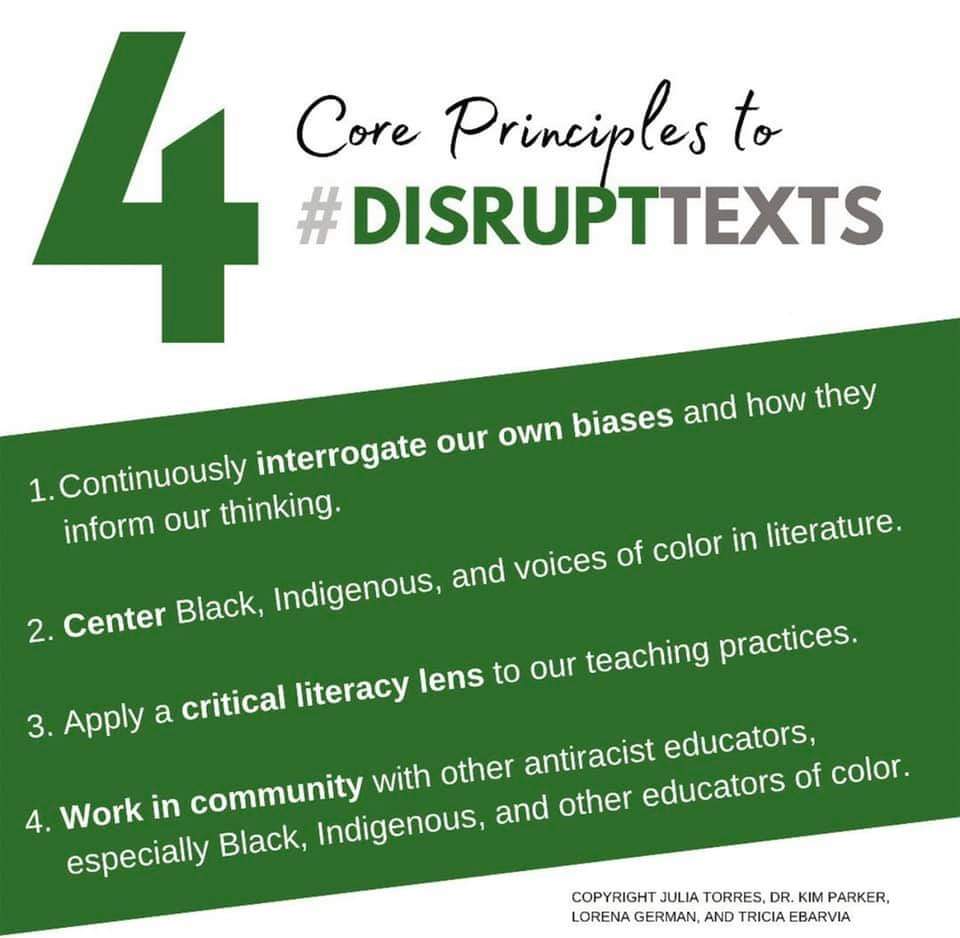
You can find more detail about the core principles at #DisruptTexts Guides
Throughout our #G2great chat, we shared their wise words:
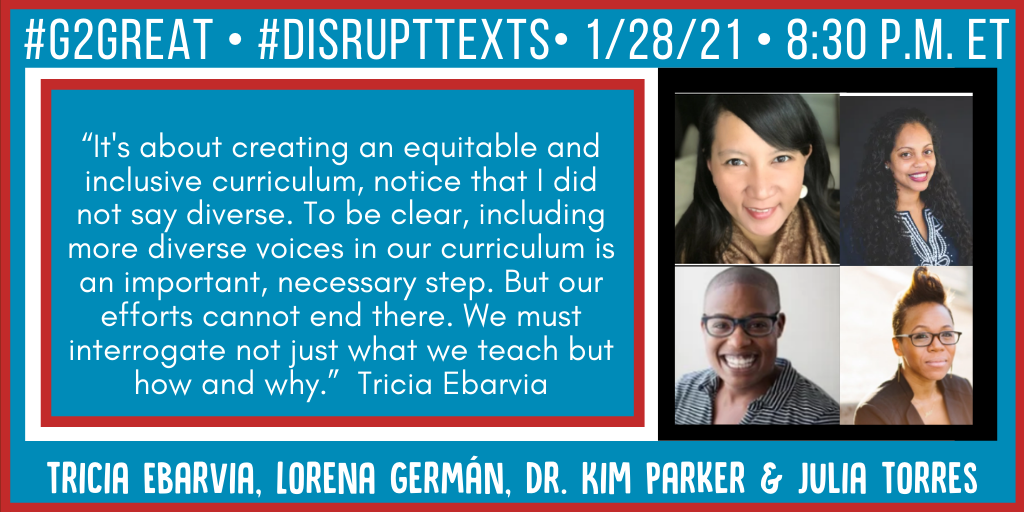
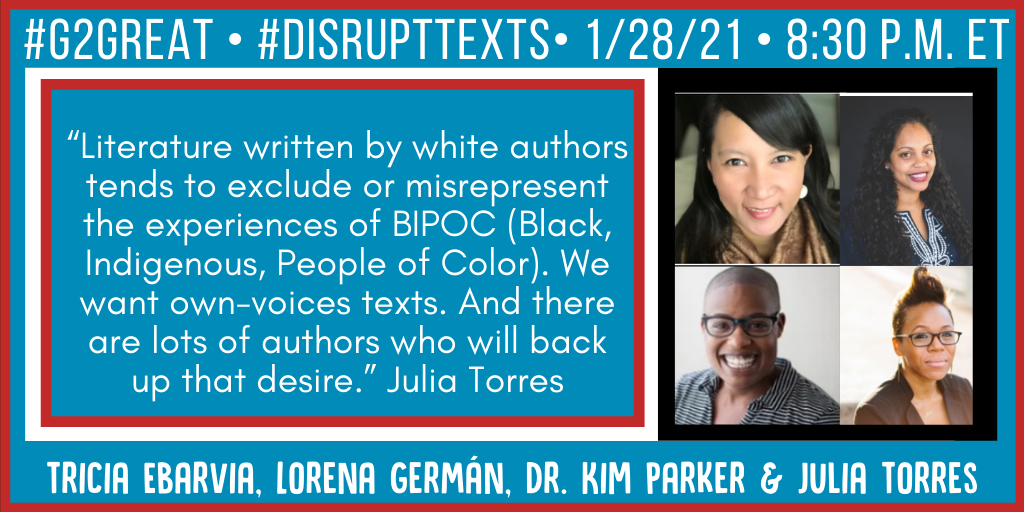
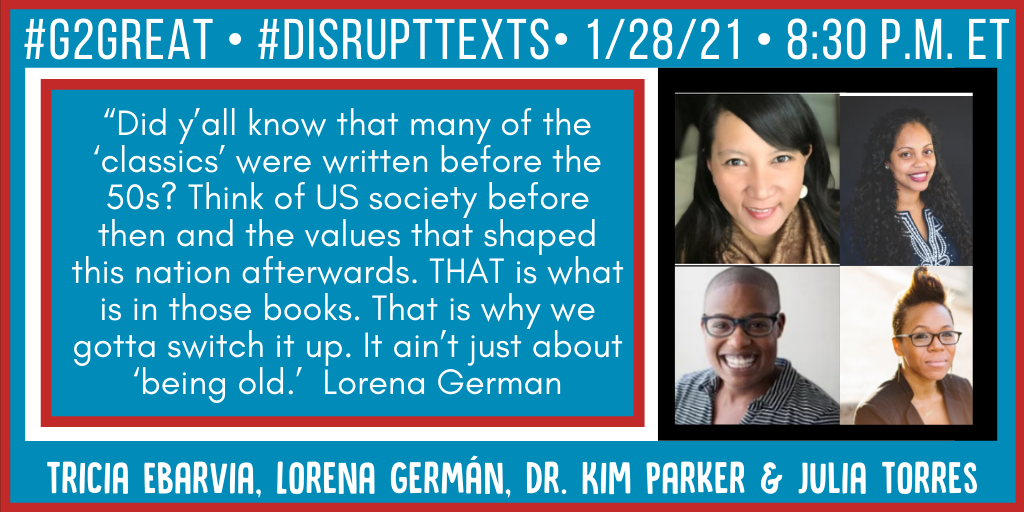
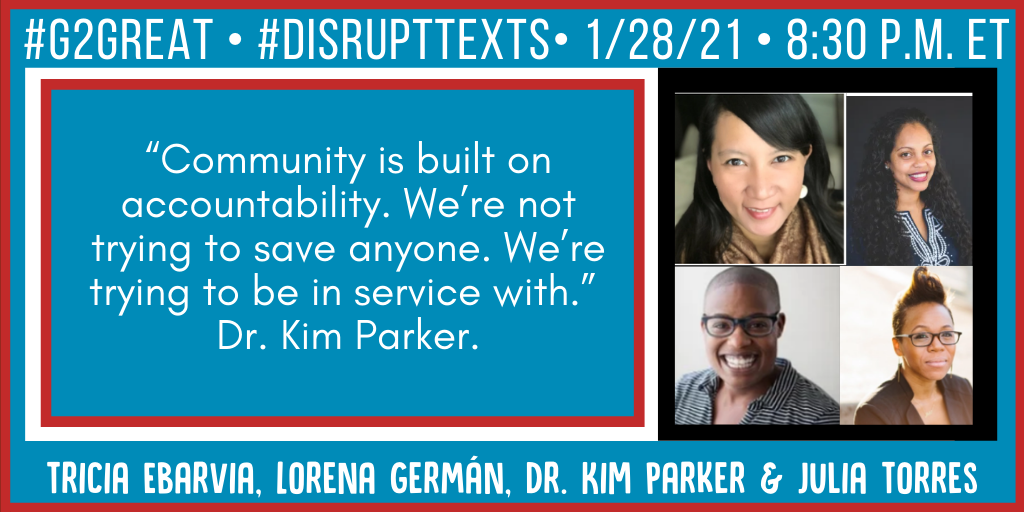
A gift for all teachers are the eight guides that are located on the #DisruptTexts website. These guides will spark conversations about the texts that are used in classrooms. Are they representative? Do students see themselves? Can these texts be paired with existing resources? Could/should some texts be replaced with texts that will be more relevant to students in 2021? The existing guides created by the founders offer rich mentor texts that will support thoughtful additions based on your students.
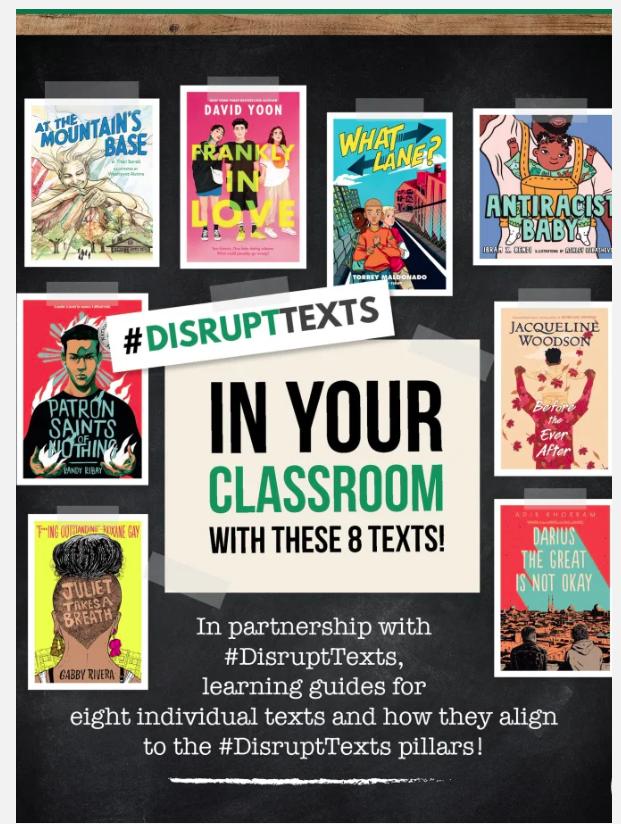
The guides include:
- At the Mountain’s Base by Traci Sorrell
- Frankly in Love by David Yoon
- What Lane by Torrey Maldonado
- Antiracist Baby by Ibram X. Kendi
- Before the Ever After by Jacqueline Woodson
- Darius the Great is Not Okay by Adib Khorram
- Juliet Takes a Breath by Gabby Rivera
- Patron Saints of Nothing by Randy Ribay
As I looked at the eight guides above, one thing that immediately struck me is how far removed they are from traditional “lesson plans” riddled with the ‘telling and doing’ that leaves little room for respecting teacher decision making guided by foundational understandings. Rather these powerful “guides” are designed to provoke and support new THINKING through considerations, suggestions, vocabulary, key concepts and questions to ask ourselves as trusted professionals. They explain in the guide description:
“Each principle stands for actions that are culturally sustaining and antiracist. Through each principle, teachers aim to offer a curriculum that is restorative, inclusive, and therefore works toward healing identities and communities. As you read this guide, you’ll see how each of these principles informs the approach recommended …”.
Across each guide, these four remarkable educators keep this promise as they honor those principles within all titles. And through these eight guides, they offer a pathway that will support each of us in embracing instructional practices that are “restorative, inclusive, and therefore works toward healing identities and communities.“
Questioning Curriculum
It is our shared humanity that quickens the urgency for change. As I reflect upon the collective wisdom of these brilliant educators, I find that more questions are stirring inside me. How can healing and restoration begin? What are the long-standing practices that have gone unchallenged by me? What are my biases, and actions sustaining? What voices are silenced in the texts I am using? What voices are amplified in those texts? Why? When we interrogate our curriculum in this way, we are honoring all students. What better place than school, a public yet intimate space where we can broaden perspective and raise expectations that there are many sides to any story.
Taking Action
Now. Now is the time to take action to change literacy instruction for the better. Right now, we can take steps towards a more responsive curriculum. Find a partner. What can one teacher do without a partner? Begin with the four core principles from #DisruptText and you may well be the spark in your school that ignites a movement towards equity, antiracism, and social justice.
LINK https://disrupttexts.org/disrupttexts-guides/
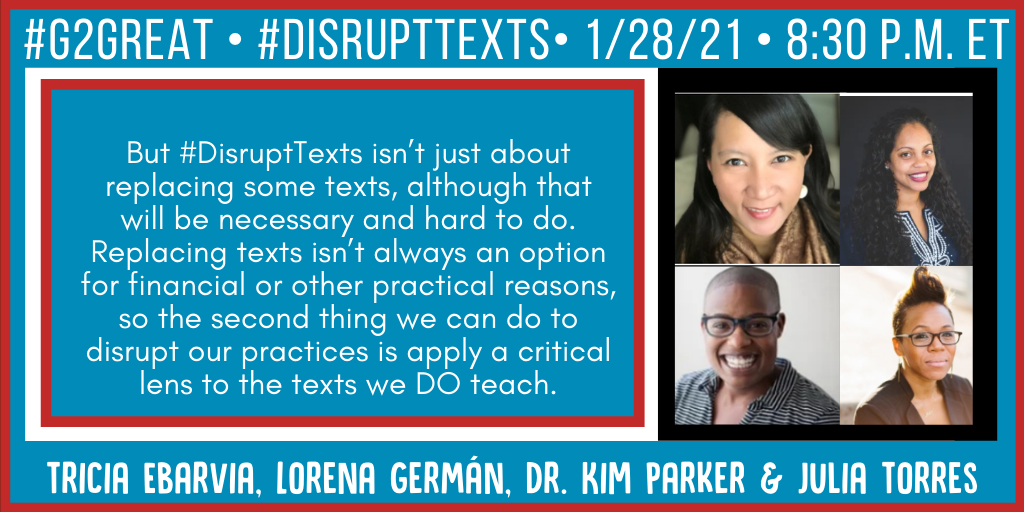
Wisdom from #G2Great chat
